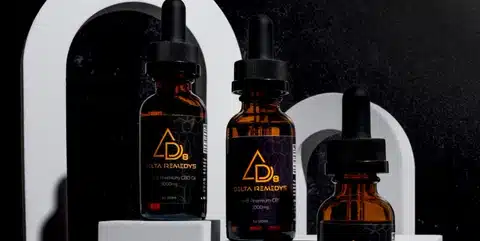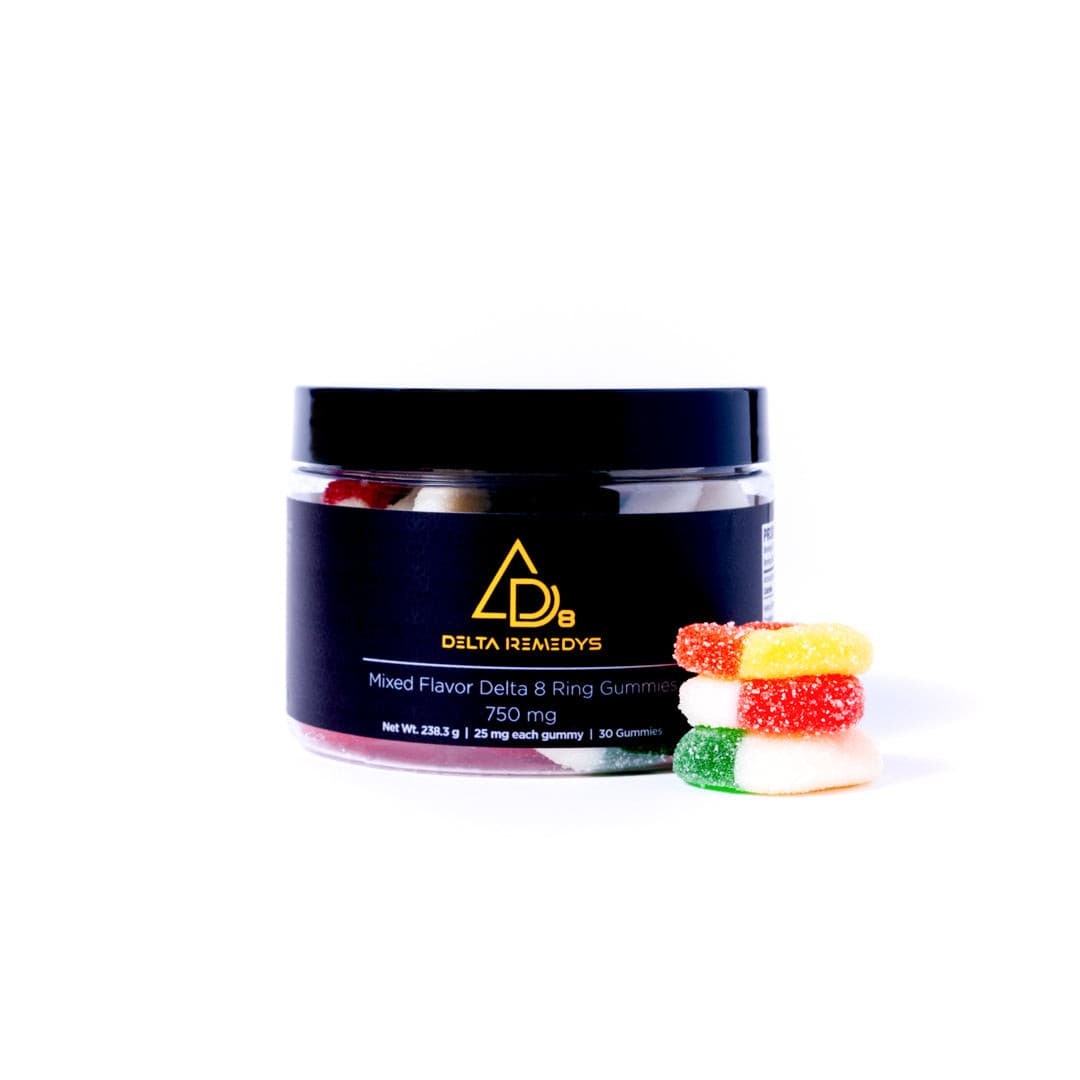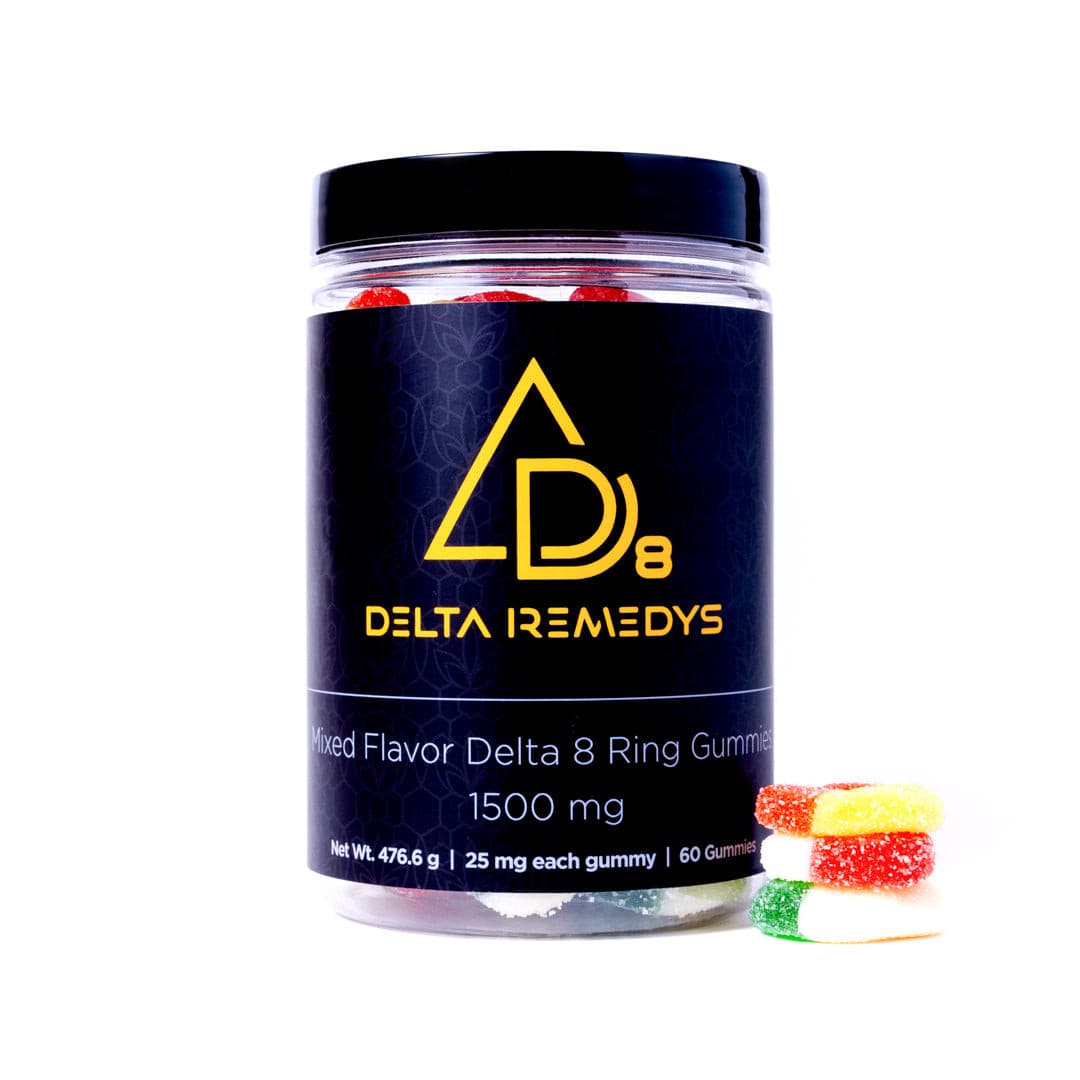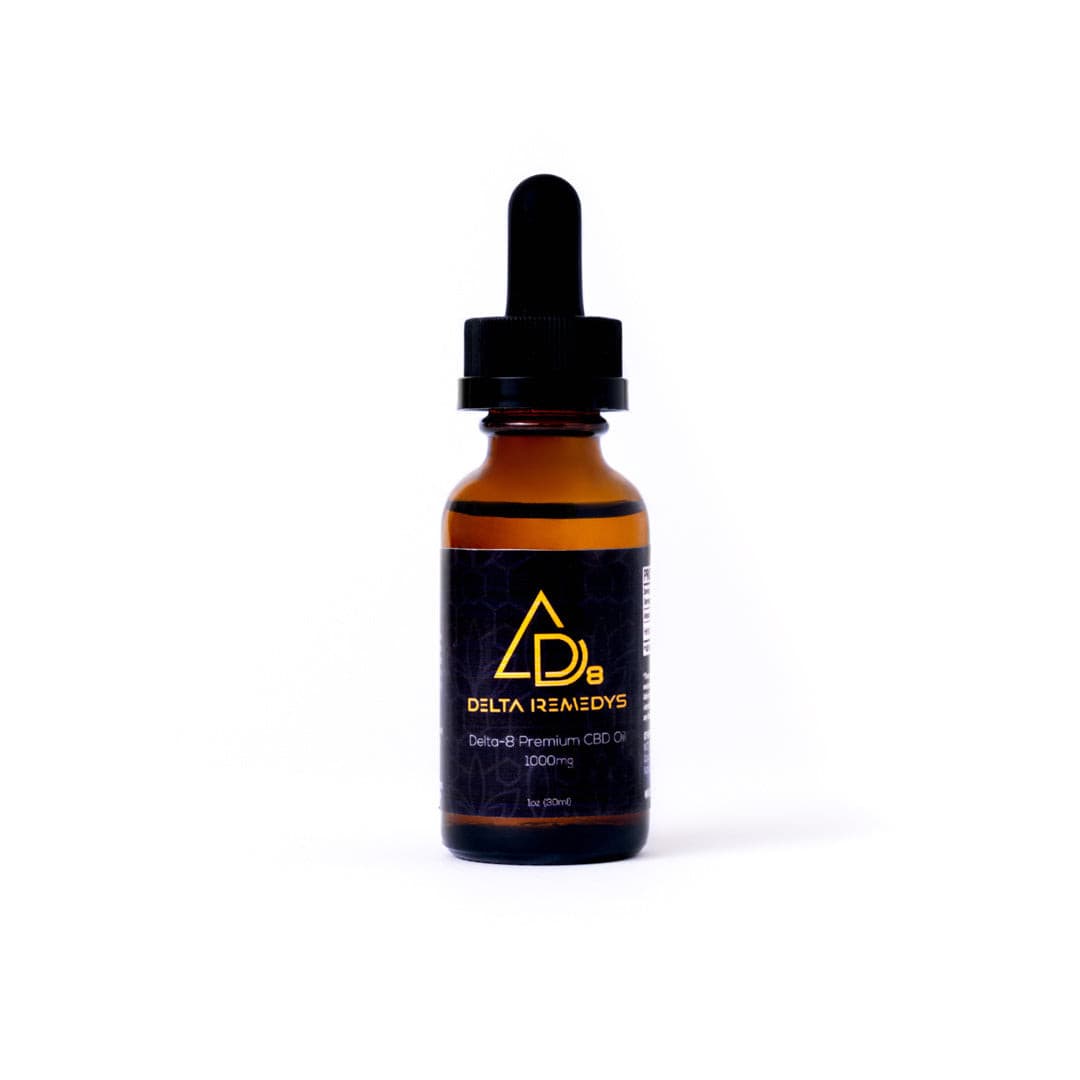Cannabis-infused edibles are one of the most popular food products right now, that are generally made with highly concentrated cannabis extracts. The making takes place when cannabis has been infused into the food. Baked goods, gummies, hard candies, chocolates, and even beverages can all be considered THC edibles. Edible products also appear in a variety of other forms just like human medicines.
They can be made in a professional kitchen or dispensary and sold to the public. All three options are possible for you to enjoy as oral medication. In the process of making edibles, tetrahydrocannabinol (which is the psychoactive component of marijuana) is extracted and then infused into oil or butter, which is then used for cookery.
Although inhaling cannabis through smoking is by far the most common way to use the drug, consuming it in edible like oral medication form is rapidly becoming more common. This is because it comes with the least to no adverse effects such as eye irritation, skin irritation, or other mild irritations.
Regrettably, a large number of people are unaware of the significant hazards and health risks that are associated with THC edibles just like taking the wrong medicines.
Here is everything, from basic to medical effects, of THC edibles and their overdosing effects on your stomach:

Edibles
Edible cannabis products are any substance containing either cannabis or cannabis extract that can be eaten by mouth. The prevalence of edibles has exploded in recent years because of their appealing flavor profiles, low profiles, and user-friendliness.
Today, there is a wide variety of consumable goods available, so there is something for everyone’s taste. Some examples of foodstuffs you might come across are:
– Gummies
– Chocolates
– Cookies
– Butter
– Candy
– Chewing gum
– Drinks (e.g., soda, vitamin water)
Edibles can have varying amounts of cannabidiol (CBD). Cannabinoids, such as THC and CBD, may be present in varying concentrations in different foods like general human medicines.
THC edibles: Is there a risk of overdose?
The potent component of cannabis, THC, can lead to fatal overdoses. There is a lack of reliable information regarding the link between cannabis use and overdose-related death or harm.
Overdose risks have been on the rise, especially as more powerful cannabis products have become widely available just like herbal medications.
While THC overdoses are uncommon, they can result in serious and common symptoms of distress, traumatic events, and even mortality due to impaired judgment and motor skills brought on by cannabis use.
The danger of an overdose from edible marijuana is greater than that of consuming the drug. It’s been hypothesized that this is because it’s harder to gauge how much THC someone has ingested when they taste it, as compared to when they smoke it.
The intoxicating effects (such as come mild irritation) of ingesting cannabis are felt more gradually and last for a longer period of time when compared to smoking the drug.
An Overview of Overdose
Overdosing occurs when any drug, even herbal medications, is taken in excess of the recommended dosage. Symptoms of a drug overdose may include nausea, dizziness, confusion, and exhaustion.
In other cases, however, like with heroin, an overdose can be deadly in a matter of minutes as per the scientific evidence.
For cannabis, a lethal overdose is extremely unusual just like herbal medications. It’s nearly impossible, according to the CDC, which has led many to believe there’s no safe dose of cannabis to prevent mild irritation.
However, this outlook can be risky regardless of the drug being used like herbal medications. A large dose may not cause fatal depression of the heart and breathing systems, but it can still be a very uncomfortable experience, especially for curious children and pets.
The key to safe and enjoyable THC use, whether through smoking or ingestible, is understanding one’s own individual tolerance and intake level. Also, getting assistance is recommended if using cannabis has become a regular part of your without any mild irritations, and you find yourself using more and more to achieve the same effect.
TCH Edibles Overdosing and Stomach Issues
Many people are concerned about the potential health risks of consuming cannabis and smoking cannabis, despite the fact that there are no seriously harmful adverse effects to doing so. Only negative effects in children and pets are seen, but with limited evidence.
Some people who consume cannabis edibles may experience digestive or gastrointestinal tract pain, in addition to the potential for nausea and other symptoms caused by accidentally consuming too much THC.
This effect is uncommon and typically only noted by those who are particularly sensitive to cannabis’ psychoactive properties such as pregnant women.
Though more scientific evidence is definitely required, preliminary research with limited evidence indicates that some people may actually be allergic to a wide variety of cannabis. Then, it’s safe to assume that consuming any sort of plant material will be unpleasant just like for curious children and pets.
Take careful note of your interactions with a wide variety of cannabis in any shape, and remember to always be kids safe. One should avoid consuming an edible on an empty stomach.
This is because doing so can increase the likelihood of experiencing stomach discomfort and gas as well as cardiac arrest in old age caused by the plant material being digested.
Eating a fatty snack before or along with your edible can help you metabolize the THC more effectively and reduce the risk of experiencing heartburn, which is another side effect of consuming an edible on an empty stomach.
Be sure to drink plenty of water before and during your edible encounter to avoid unpleasant side effects like dizziness, abdominal pain, chronic pain, nausea, high blood pressure, and dry mouth.
If you don’t drink enough water, the cannabis in your bloodstream may have even more pronounced effects like these according to the scientific evidence.
The use of cannabis, particularly at high doses of THC, may have a short-term effect on heart rate by increasing blood pressure. This is because THC is a vasodilator, which means it can cause a rise in heart rate to keep blood pressure and blood flowing steadily by widening blood vessels.
The positive news as per the scientific evidence is that cannabis use has never been explicitly linked to cases of heart failure, heart disease, high blood pressure, or sustained arrhythmia.
If you already have a heart condition and chronic pain, however, you should exercise additional caution when trying edible cannabis products.
If you feel your pulse racing with high blood pressure while under the influence of cannabis, it is recommended that you take a break from using the drug, drink a lot of water, and try to find a peaceful, relaxing place to sit if at all possible.
You can often regain control of the situation and rid yourself of the negative effects, such as abdominal pain, by reminding yourself that these symptoms are only temporary and not severe, unlike any cruel scientific evidence.
Finally, studies with limited evidence are progressing to establish if CBD can cause liver damage with chronic pain in young curious children and pregnant women. Scientists have learned from this scientific evidence that liver damage may only occur when cannabinoids are present in the body in quantities far beyond what a normal individual would consume.
CBD did not appear to have any adverse effects as per the limited evidence, like very high blood pressure and abdominal pain, within the typical dosing ranges. Also, some other studies at National Institute on Drug Abuse have shown scientific evidence that multiple cannabinoids may actually help safeguard liver damage at a cellular level and even prevent certain liver diseases in curious children.
The Right Treatments with Scientific Evidence
Fortunately, there are certain actions that you can do to alleviate the discomfort of indigestion and its effects in children:
Meds for discomfort
Abdominal pain, specifically cramping, is a frequent symptom of diarrhea which also causes various effects in children. Ibuprofen or acetaminophen may alleviate some of the discomfort caused by the swelling. Take care not to overdo it with any edible cannabis products, though, or you may end up with an even worse stomachache according to the scientific evidence.
Anti-diarrhetic
Diarrhea is characterized by frequent, watery bowel movement effects in children and adults. Anti-diarrheal prescription drugs can effectively alleviate this condition along with stomach poison control. Though OTC options like Imodium are accessible, more potent treatments or poison control require a health care provider’s prescription and better medical care.
Antacids
Heartburn, gas, and pain can all be alleviated with the help of an antacid when you have diarrhea for stomach poison control. You may find comfort in taking an antacid, such as Pepto-Bismol, Alka-Seltzer, or even Milk of Magnesia as your first medical care.
Tea with peppermint
Peppermint tea is a gentle, natural, and tasty addition to any stomach poison control therapy plan for diarrhea. Peppermint tea has been shown in scientific research to calm the stomach and relieve stomach discomfort and opioid poisoning.
Peppermint tea has been shown in multiple clinical studies to alleviate the diarrheal symptoms of Irritable Bowel Syndrome. There have been no reports by health care providers of any negative reactions to peppermint teal in terms of medical care.
Eliminating Food Allergens
Eliminating the underlying source or psychotic symptoms of diarrhea is a crucial step in treating the condition with poison control or opioid poisoning. You should hold off on eating the foods in question until you’ve determined that they are not the cause of your diarrhea.
Alcohol, coffee, and dairy products are also major dietary contributors to diarrhea and should be avoided for better stomach poison control and medical care.
Compressing the affected area with heat
The cramping pain associated with defecation of long-term cannabis use can be alleviated by placing a warm compress or wheat bag on the stomach. Heat can improve blood flow, which in turn can reduce pain, and the risk of poisoning (opioid poisoning), along with speeding up the healing process with better poison control and medical care.
Gently soaking an absorbent towel in hot water, squeezing out the excess water, and then putting it on your face will provide you with a warm compress. Please make sure the cloth isn’t too hot to use.
THC Edibles Overdose Symptoms
For many reasons, cannabis overdoses are growing common due to opioid poisoning issues. Because of the dose-related nature of THC overdose, eating marijuana presents a greater danger than smoking cannabis.
Overdosing on THC can cause some common harmful effects, such as:
– Cognitive impairment
– More panic attacks
– Reduced motor function
– Severe effects of anxiety
– Fear and hysteria
– Agitation
– Heavily sedated
– Psychiatric disorders
– Physiological strain on the heart
– Liver Failure or Liver Damage
– Vomiting
– Severe effects of psychosis (e.g., hallucinations, delusions)
Signs of serious diarrhea
Diarrhea can range in severity from mild to extreme, and each person’s experience will be unique for each psychiatric disorder. Symptoms from mild diarrhea should be mild and resolved on their own with simple medical care. Mild gastroenteritis can cause harmful effects like:
– Extreme diarrhea with watery stools
– Frequent use of the restroom with muscle spasms
-Disturbed stomach with an increase risk of poisoning
The consequences of severe dysentery are much direr just like liver damage or liver failure. If you believe you’re experiencing severe diarrhea, call your doctor right away for immediate medical care.
Among these are possible examples:
– Excruciating discomfort
– Rapid slimming down
– Muscle spasms
– Dehydration
– Vomiting
– Feces with blood like in liver failure or liver damage
THC Edibles Overdose Prevention
Recognizing that cannabis can be a dangerous substance, and not at all kids safe with the potential to cause an overdose, is a crucial step toward stopping drug overdoses entirely.
The following procedures could be considered in order to stop a THC overdose:
– Staying away from weed completely (especially if you are a pregnant woman)
– Bringing down current cannabis consumption rates for medicinal purposes
– Realizing the toxic effects of combining marijuana and booze (you should probably avoid doing either)
– Recognizing that one’s tolerance has diminished following a dry spell
– Maintaining a healthy fluid balance
– Understanding the presence of other harmful chemicals which might cause liver failure or liver damage, so avoid it
– The ability to identify preexisting health problems that could be exacerbated by THC edible use
– Relocating or altering social interactions to reduce or eradicate potential drug use for medicinal purposes
– In search of the best medical care from a medical marijuana expert
It’s crucial to stay away from other potentially fatal circumstances involving cannabis, like getting behind the wheel while high. The percentage of deaths attributed to cannabis use rose from 12.6% in 2013 and 2014, according to data compiled by AAA
The use of marijuana edibles is not without its share of dangers, some of which are serious or even fatal. Fortunately, there is medical care for people at any point in their cannabis use with the help of clinical trials to treat the toxic effects.
The ECS and THC
Among the hundreds of compounds found in cannabis are cannabinoids. These, presumably in combination with other compounds called terpenes, account for cannabis’s effects. The endocannabinoid system is a complicated network throughout the body that cannabinoids are thought to influence.
Endocannabinoids are a class of neurotransmitters produced endogenously by the body that works on specific receptors in the nervous system, muscles, fat, and gastrointestinal tract. Cannabinoid type 1 (CB1) and type 2 (CB2) receptors are the names given to these proteins.
CB1 was first identified in 1988, so the ECS is still a relatively new phenomenon, and scientists are still trying to figure out how it works. The majority of research indicates, however, that it aids in the regulation of pain, emotion, appetite, GI motility, memory, emotion, stress reaction, immune function, and more.
When an individual ingests the organic cannabinoids in cannabis, which are identical molecular shapes to endocannabinoids, they integrated into the CB1 and CB2 receptors and initiate reactions that lead to in two ways; very high or very low levels of particular neurotransmitters, which the cells of the nervous system, as well as other systems in the body, use to communicate with each other.
When it comes to medicinal cannabis, the ECS is crucial because alterations in ECS function may be linked to the pathology of chronic diseases and the efficacy of cannabinoids.
In cannabis, delta-9-tetrahydrocannabinol (THC) and cannabidiol (CBD) are the two most prominent cannabinoids. The most well-known cannabinoid, THC, is responsible for the intoxicating effects of cannabis, including decreased nausea and discomfort, and increased hunger (the munchies).
Also a slew of other psychological effects like relaxation, euphoria, and distorted sensory perception. Negative psychological effects, such as irritability, anxiety, and paranoia, are largely due to THC as well.
In spite of the fact that cannabidiol (CBD) does not have psychoactive effects, it does contribute to the calming effects of the plant. CBD has anti-inflammatory, anti-nausea, and anti-seizure properties.
Some of the detrimental effects of THC, like anxiety and paranoia, may be mitigated by this so they are dangerous for pregnant women and children.
High THC Content and Other Edibles Hazards
The THC that is consumed via edibles is metabolized in a manner that is separate from that which occurs when the drug is smoked. The impact of foods on a person varies according to their unique metabolic rate.
When and how long impacts last may be affected by a person’s age, gender, and weight. This may cause the adverse effects to last longer and be more severe. There is a possibility of drug interactions due to the THC present in sweets.
People who use powerful drugs with cannabis on a regular basis for long periods of time may be at risk for having a syndrome characterized by episodes of cyclical vomiting called cannabinoid hyperemesis syndrome.
CHS risk is increased with chronic cannabis use (both smoking and ingesting powerful drugs), particularly at high-maintenance doses. People suffering from this syndrome often experience severe abdominal discomfort, nausea, and vomiting, as well as the need to seek healthcare providers for clinical trials.
An overdose of either edible marijuana or smokeable marijuana can cause negative psychiatric effects and other toxic effects such as anxiety, paranoia, and even a psychotic response. These are characterized by agitation, hallucinations, and delusions in youngsters and pregnant women just like other generic drugs.
The availability of generic drugs and edibles has been linked to a rise in the number of cases where children accidentally consume cannabis and encounter toxic effects along with other risk factors.
Marijuana edibles are dangerous like other generic drugs because they look and taste like common foods and can be easily mistaken for those people of all ages, including toddlers and pets. They come with high-risk factors and a higher risk of toxicity for young age groups.
Therefore, the CDC and healthcare providers advise that people who use marijuana products, such as edibles, store them in childproof containers like other powerful drugs, and keep them away from dogs, pregnant women, and young children.
THC Edibles Overdosing Help: When to Ask
Consuming edibles may appear to be a risk-free method to relieve stress like other generic drugs, but in reality, it is significantly more hazardous than you may realize.
Consuming edibles can have a number of negative side effects on one’s health according to healthcare providers. They can come with a lot of risk factors and even more risk of toxicity if taken the wrong way.
THC content dependency is a danger along with its many toxic effects and other risk factors. The condition known as cannabis use disorder refers to an addiction to THC content. Consuming cannabis in the form of edibles can lead to addiction in the same way that consuming marijuana can lead to dependency on the drugs with a high risk of toxicity.
There needs to be a deeper examination of the role that cannabis plays in your life if you discover that you are using it despite the negative physical or psychological effects.
It’s possible that you turn to THC edibles as a means of relieving boredom, depressive disorder, tension, and other unfavorable feelings, as well as a means of coping with the challenges you face in life.
If this is the case, then talking things over with a counselor might be helpful to stay away from the toxic effects and any other risk of toxicity in your body.
A worrying behavior is one that causes disruption in important areas of life along with some unwanted side effects like depressive disorder. Signs of a marijuana use disorder include excessive smoking to the point where it causes the individual to neglect important responsibilities such as schoolwork, job, and family responsibilities, as well as withdraw socially and avoid previously enjoyable activities.
Behavioral and bodily forms of addiction exist with lots of toxic effects. An addiction to nicotine is a real possibility full of unwanted side effects like depressive disorder. If this is the case, seeking assistance may be the most effective method to deal with problems before they worsen.
Potentially Additional Effects of Edibles
Although diarrhea is a potential risk to the gastrointestinal tract when consuming edibles, there are other unwanted side effects to be mindful of.
It has also been shown that CBD can cause mild instances of:
– Drowsiness
– Lack of hunger
– Fatigue
Despite the fact that THC use has been linked to these unwanted side effects too:
– Rapid heartbeat
– Red eye irritation
– Chapped lips
– Confused memory
– Enhanced responsiveness
– Anxiety
– Cardiac arrest
A visit to the doctor for clinical trials or a quick phone call to 911 could save your life if you experience any of these unwanted side effects and are worried about how your body will respond to this bad combination of products.
Stop using the edible and consider adjusting the dosage and/or cannabinoid content if the reaction is mild or you getting mild side effects, unlike any severe depressive disorder.
Tips to Keeping your THC Intake in Check
To reduce your THC intake, begin with a low dose and gradually raise it until you reach your desired effect or combination products. Keep in mind that there is no easy method to “come down” from excessive use.
Therefore, it is preferable, to begin with, a succession of low doses rather than a single high one to prevent any negative side effects like depressive disorder.
Here are the tips to consume THC edibles the right way:
Dosing
It has been suggested that a beginning dose of 2.5 mg of THC be used when ingesting edibles to avoid even mild side effects. Edibles, drinks, and medicines with 1–2.5 milligrams of THC are appropriate for first-time users having no negative side effects. You should delay 3 hours if the dose is insufficient.
Use a low-THC product or one with a high CBD to THC percentage when smoking or vaping. Start with one puff, and pause at least 15 minutes before having another to avoid any mild irritation.
Learning the Right Time to Stop
If you experience any of the above mild side effects (like eye irritation, skin irritation, etc.) from THC, particularly the overdose symptoms, you should reduce or stop your consumption immediately. It is just like you are taking the wrong medicine.
The development of physical reliance on cannabis can be avoided by taking breaks of at least two days between uses. This is especially beneficial for people who use medical cannabis as oral medication, as it lessens their tolerance to the drug’s effects as well as negative side effects.
Important FAQs
How long does it take for the effects of hemp to wear off your system?
The amount of cannabis oral medication you consume has the greatest impact on how long the powerful drug remains detectable in your bloodstream. THC can be found in the urine of regular users for at least 30 days after they have stopped using the drug, and sometimes even longer.
Even if you only used cannabis once, traces of it can be found in your urine for up to three days afterward, even if you don’t use it regularly as oral medication.
Is there a specific dosage amount that’s been recommended for the oral medication of cannabis?
For the purposes of scientific study, one unit of THC is equal to 5 milligrams. However, medical professionals advise beginning treatment with a dosage of half that amount (2.5 mg) and limiting daily consumption to no more than 40 mg.
It can be difficult to accurately estimate a dose, which is yet another reason to err on the side of caution when making medical decisions.
How much cannabis is considered safe to consume?
The appropriate amount of cannabis for one individual may not be appropriate for another, just like normal human medicines. It is dependent, among other things, on the amount of cannabis experience you have as well as the frequency with which you use it.
Someone who uses the substance on a regular basis may not experience any negative or mild side effects from a dosage that would lead a novice user to overdose.
Wrapping Up
While it is possible to overdose on cannabis combination products, this is highly rare just like consuming the wrong medicines. Wait for the effects to fade off if you overdose on cannabis oral medication.
The above-discussed methods of self-care can help lessen the severity of the bad gastrointestinal tract symptoms along with other mild side effects.
While the consumption of edible cannabis combination products may cause some gastrointestinal distress, serious liver damage or other acute health risks are extremely rare.
Edibles with high sugar content or a poor infusion technique could be to blame for any gastrointestinal distress. Even if you face eye irritation, skin irritation, or other issues similar to when you take the wrong medicines, it is time to take the action.
Food with cannabis combination products can cause diarrhea, but it is not very prevalent like other powerful drugs. Edibles-induced diarrhea is probably due to taking too much CBD, so lowering your dosage should assist your condition.
It’s crucial to keep an eye out for other meals that might be contributing to your diarrhea. Controlling diarrhea can be achieved through common human medicines, peppermint tea, and avoiding causes.
One way to avoid a fatal excess is to keep track of how much THC you consume as oral medication. The beginning dose for edibles is between 1 and 2.5 milligrams of THC, while for smoked cannabis, a few milligrams of THC in one puff is recommended.
Overdosing on CBD combination products is not likely to have serious consequences unlike taking the wrong medicines. However, many powerful drugs or other cannabis items don’t have accurate labels and may contain substances like THC resulting in issues like eye irritation or skin irritation.
So, it is your job to do the homework before you buy and start consuming your favorite THC edibles!







